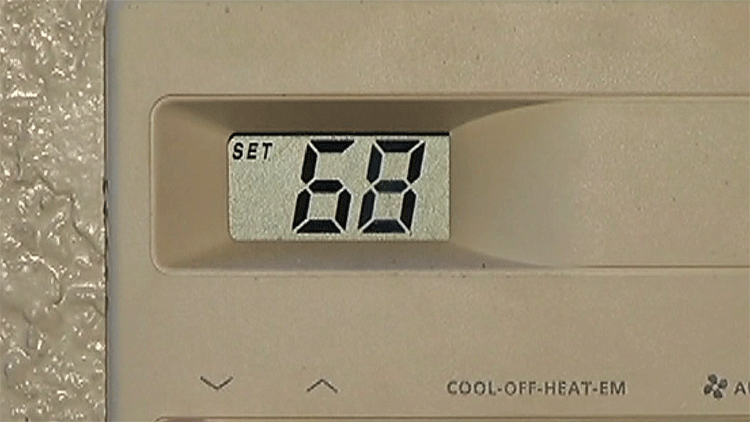
Buying electricity directly from a competitive supplier is either a bad bet that costs households millions of dollars a year or an opportunity that could have saved ratepayers more than $1 billion last year.
Massachusetts has allowed residents to get their electricity directly from a competitive supplier rather than a utility company since 1998, the year after an industry deregulation law. About 378,000 homes got their power that way between July 2022 and June 2023, and the attorney general's office said the number of homes enrolled has been on a modest decline.
WATCH ANYTIME FOR FREE
Stream NBC10 Boston news for free, 24/7, wherever you are. |
But for years now, lawmakers and regulators have ramped up their calls to crack down on the competitive electric supply industry for residential customers, describing deceptive sales pitches that can prey upon low-income or elderly residents and complicated contract terms that wind up saddling customers with higher costs. Legislation that would ban competitive electric supply for residential customers has been proposed but not acted upon in recent legislative sessions. This year's bills (H 3196 / S 2106), filed by Sen. Brendan Crighton and House Second Assistant Majority Leader Frank Moran, are before the Joint Committee on Telecommunications, Utilities and Energy.
During a briefing for reporters Wednesday morning, the chief of the Energy and Ratepayer Advocacy Division of the attorney general's office said the office's next report on competitive electric supply will show that Massachusetts residents who signed on with a competitive supplier paid an aggregate of $577 million more than they would have on their utility's basic service from July 2015 to June 2023.
Get updates on what's happening in Boston to your inbox. Sign up for our News Headlines newsletter.
"This is money that ratepayers could use to pay rent, or put food on the table, or to make meaningful investments in the fight against climate change, for example by insulating their homes, investing in air source heat pumps, or installing EV chargers. Our studies have shown that despite fluctuations in the energy markets over the years, customers have experienced net losses in seven out of eight years, with annual aggregate losses ranging from a low of $65 million to a high of $111 million for a single year," Liz Anderson said. "In the last year of aggregate customer losses, July 2021 to June '22, the average household lost more than $202 per year, with the average low-income household losing approximately 11% more than the average households at $224 per year."
At almost the same time as Wednesday morning's briefing, the Retail Energy Advancement League announced that its own analysis of 2023 Massachusetts utility ratepayer costs showed that residents on default utility service could have collectively saved up to $1.14 billion last year had they enrolled with the lowest-cost competitive retail supply offer available on the state-run EnergySwitchMA.gov website.
More on utility costs
"Consumers opt for competitive electric suppliers for many reasons, one being significant cost savings. Whether it’s securing lower rates, managing predictable bills, or aligning with environmental priorities, the potential for substantial savings is a driving force," Christopher Ercoli, REAL's president and CEO, said. "If more Massachusetts residents had chosen a retail supplier they could have unlocked even greater savings."
There has been a concerted effort among top Beacon Hill policymakers to put an end to the competitive electric supply industry's residential sector, but nothing has come to pass. Gov. Maura Healey pushed unsuccessfully for that step when she was attorney general, and her successor, Attorney General Andrea Campbell has picked up the torch. Earlier this year, Department of Energy Resources Commissioner Elizabeth Mahony said the industry "doesn't contribute in any meaningful way."
Crighton said Wednesday that it's time to end competitive supply because the system "was put in place under the assumption that a competitive marketplace would lead to lower prices for customers."
"The opposite has been true. Because competitive suppliers are able to charge whatever rates they want without approval from the state, too many customers get charged more as a result. Instead of allowing consumers to shop for the best rate, the competitive supply industry has created a system where customers are locked into a contract they may not understand and are victim to variable rates that increase over time," the Lynn Democrat said.
Instead of prohibiting suppliers, energy marketers and energy brokers from signing up new residential retail customers, REAL backs a bill that would allow its industry to continue with new guardrails. Among the requirements contemplated in legislation filed by Rep. Tackey Chan (H 3155) is the responsibility of suppliers to alert customers before a contract automatically renews.
REAL on Wednesday also recirculated a compilation of comments from more than 3,000 Massachusetts ratepayers who are opposed to Crighton's bill.
The bills have had hearings before both House and Senate members of the TUE Committee, which has been operating in a bifurcated way so far this session as its chairmen, Rep. Jeffrey Roy of Franklin and Sen. Michael Barrett of Lexington, traded barbs over joint rules. Though there have been signals of a thaw in relations on that committee, advancing legislation by the Feb. 7 bill-reporting deadline will take a measure of bicameral cooperation that has essentially been nonexistent so far this term.



